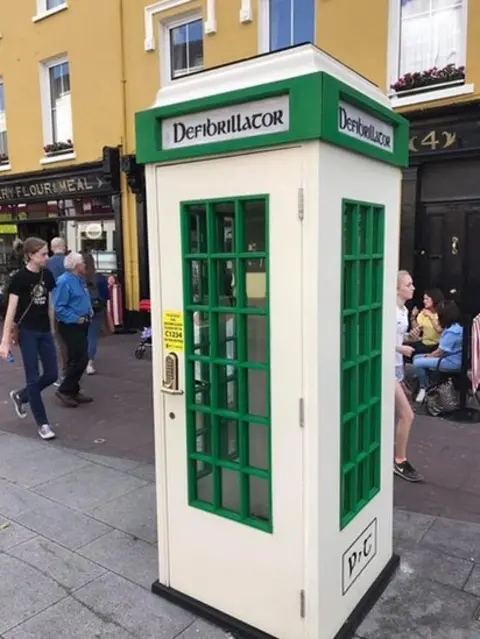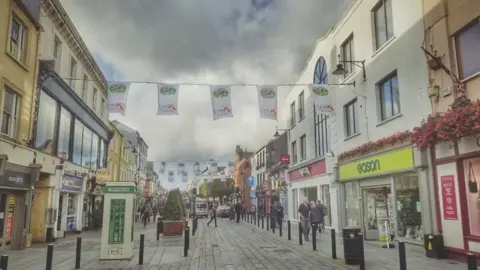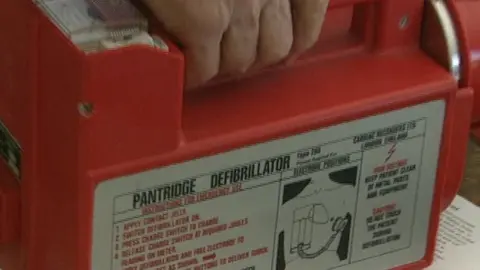New defibrillator lifeline for 'old' Irish phone boxes
 Heart of Kilkenny
Heart of KilkennyTraditional phone boxes may have become almost obsolete due to a preference for mobile phones, but one Irish city is considering bringing back 'old' kiosks.
Campaigners in Kilkenny want to install life-saving defibrillator machines in new wooden kiosks, designed to look like old-style Irish phone boxes.
They have asked Kilkenny County Council to consider funding the initiative.
Replica phone box defibrillators first appeared in County Kerry last year and there are now 10 in the Irish Republic.
'Heart of every town'
In Northern Ireland, BT introduced its first phone box defibrillators in the village of Crossgar, County Down, in 2013.
The medical device, which was invented in Belfast in 1965, is used to deliver an electric shock to the heart to help someone who is in cardiac arrest.
Kilkenny campaigner Derek Devoy first saw the phone box defibrillators on a weekend trip to Killarney, County Kerry.
He told BBC News NI they "looked beautiful" and their eye-catching design meant they could be given prominent positions on main streets.
 Heart of Killkenny
Heart of Killkenny"At one time, phone boxes were at the heart of every town," Mr Devoy said.
He is now involved in the "Heart of Kilkenny" defibrillator project and is trying to get four installed in his home city.
He recently contacted his local council to seek their financial support.

Defibrillators - the facts
- It is a medical device that gives a high-energy electric shock to the heart through the chest wall to someone who is in cardiac arrest
- This high-energy shock is called defibrillation, and is an essential step in saving a life
- The portable defibrillator was invented in 1965 by Belfast-based cardiologist, Prof Frank Pantridge
- Prof Pantridge's invention has helped to save millions of lives over the past 50 years
- If someone has had a cardiac arrest, you should first call 999 and start chest compressions or CPR
- Then find out if there is a defibrillator nearby, according to the British Heart Foundation

Mr Devoy is a taxi driver, who regularly drives around Kilkenny at night.
He told the council that although portable defibrillators have been installed inside several buildings, many are only accessible during office hours.
He said the phone boxes would be available on a 24-hour basis and could be installed within existing CCTV zones to prevent vandalism.
'Tourist attraction'
Councillor Andrew McGuinness, a former mayor of Kilkenny, agreed to bring the idea to his fellow councillors.
He told BBC News NI he thought it was a "good idea" and that "tourists love them".
However, he said they needed more information on their costs and operation before any decision would be taken.

Mr Devoy said the boxes are manufactured in Dublin and could cost about 4,000 euros each (£3,500).
'Lifeline'
The first Irish phone box defibrillators was launched in Killarney last November, with the help of trainee paramedic, Damien Baker.
Speaking to the Irish Independent at the time, he said: "Historically the phone box played a huge role within each Irish community, they were the lifeline that kept families together.
"Now they can do that again by housing these life-saving devices and help the public recognise and remember the locations of the Automated External Defibrillators (AEDs) - commonly known simply as defibrillators."
Mr Baker added: "Our hope is that other towns will roll out this plan too so that no matter what town you're driving through in the country you know exactly where the defibrillator is."
